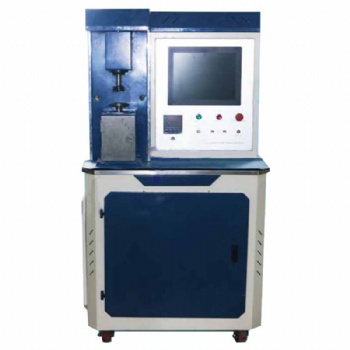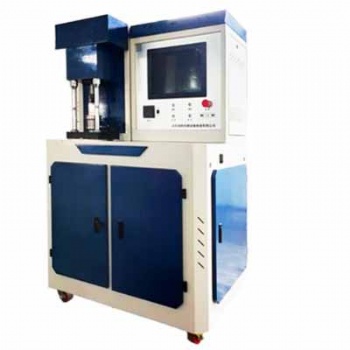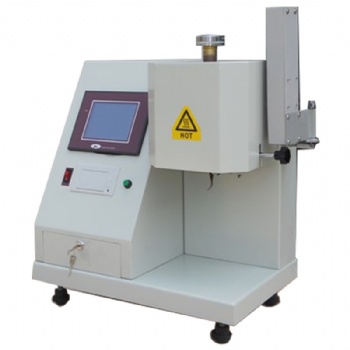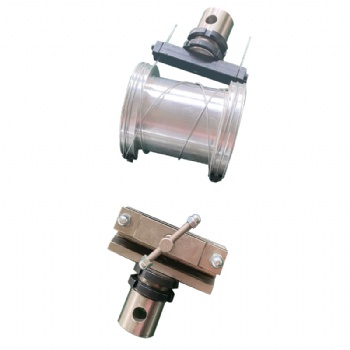News
Everything You Need to Know About Hydraulic Universal Testing Machines
Everything You Need to Know About Hydraulic Universal Testing Machines
Hydraulic Universal Testing Machines (UTMs) are essential tools in materials testing, widely used in industries that demand precise mechanical property measurements. From quality control in manufacturing to research and development, these machines allow professionals to assess the strength, flexibility, and durability of various materials. In this blog, we’ll explore the basics of hydraulic UTMs, their types, testing capacities, test parameters, and relevant standards. Additionally, we’ll discuss how to select the right machine and provide insights into price ranges.
What is a Hydraulic Universal Testing Machine?
A Hydraulic Universal Testing Machine (UTM) is a versatile device that applies a controlled load to test the mechanical properties of materials. "Universal" refers to its ability to perform different types of tests, primarily tension, compression, and bending, across various materials like metals, plastics, rubber, textiles, and more. The hydraulic mechanism provides the force necessary for testing, making these machines suitable for testing high-strength materials that require greater force than electrically driven machines can deliver.
Types of Hydraulic Universal Testing Machines
1.Single Column Hydraulic UTM:
Suitable for testing lower-capacity materials, typically used in labs or educational settings.
Compact design with a single-column structure, ideal for space-saving applications.
2.Double Column Hydraulic UTM:
Offers higher capacity, designed for industrial applications where heavy-duty testing is required.
Double-column structure provides better stability and load distribution, making it suitable for testing large specimens and high-strength materials.
3.Four Column Hydraulic UTM:
Used for very high-capacity tests and heavy-duty industrial applications.
Offers the highest stability and load-bearing capacity, commonly found in construction and automotive industries where large specimens need to be tested.
Capacity of Hydraulic Universal Testing Machines
Hydraulic UTMs come in various load capacities, typically ranging from:
5 kN to 100 kN: Suitable for lightweight and small-scale testing, such as plastics, textiles, and some metals.
100 kN to 500 kN: Suitable for standard industrial testing, commonly used in the automotive and aerospace industries.
500 kN to 2000 kN or more: Designed for heavy-duty applications, like testing large metal parts, construction materials, and more demanding applications.
Test Parameters and Explanations
Hydraulic UTMs are designed to test several key parameters, depending on the material and industry requirements:
1.Tensile Strength:
Measures a material’s resistance to breaking under tension.
The machine stretches the material until it breaks, recording the maximum load it can handle.
2.Compression Strength:
Determines the ability of a material to withstand forces that reduce its size.
Used for materials like concrete, metal, and rubber to assess structural durability.
3.Flexural/Bending Strength:
Evaluates the material’s ability to resist bending forces.
Commonly tested for construction materials and polymers to predict bending or structural failure under loads.
4.Shear Strength:
Measures the material’s capacity to withstand sliding forces parallel to the surface.
Important for materials used in joint and structural applications.
5.Elongation/Deformation:
Measures the amount of stretching or deformation before a material fractures.
Useful for assessing flexibility in materials like rubber and plastics.
Relevant Test Standards (GB, ISO, EN, ASTM)
Various international and national standards specify test methods for UTMs to ensure consistent and reliable results:
GB (Chinese National Standards): Used in China for materials like metals, plastics, and concrete.
ISO (International Organization for Standardization): ISO 6892 for metals under tensile loading, ISO 604 for compression testing of plastics, among others.
EN (European Standards): Commonly followed across Europe, including standards like EN ISO 527 for plastics.
ASTM (American Society for Testing and Materials): ASTM E8 for tension testing of metals, ASTM D638 for plastic tensile properties, ASTM C39 for compressive strength in concrete.
These standards define testing procedures, specimen dimensions, and test speeds to ensure data comparability.
Application Areas of Hydraulic Universal Testing Machines
Hydraulic UTMs have a wide range of applications across various industries:
1.Construction:
Testing concrete, steel rebars, and composite materials for strength and durability.
2.Automotive and Aerospace:
Assessing the strength and flexibility of metal and composite components, ensuring they can handle mechanical stresses in real-world conditions.
3.Metallurgy:
Testing metals like steel, aluminum, and alloys for properties like tensile strength, ensuring they meet safety and quality standards.
4.Plastic and Rubber:
Measuring flexibility, tensile, and compression strength to evaluate product quality for items like hoses, seals, and other elastomer products.
5.Textile Industry:
Assessing the tensile strength and elongation of fibers and fabrics to ensure durability and quality.
6.Research and Development:
For developing new materials and improving existing ones in sectors such as polymers, biomaterials, and nano-materials.
How to Choose a Hydraulic Universal Testing Machine Factory
Choosing the right factory or manufacturer for hydraulic UTMs is critical to ensure high quality and reliability:
1.Reputation and Experience:
Look for established manufacturers with a history of producing high-quality testing machines. Customer reviews, industry reputation, and longevity are indicators of reliability.
2.Certifications and Standards Compliance:
Ensure the factory adheres to industry standards, such as ISO, ASTM, and CE certifications, as these indicate compliance with international safety and quality standards.
3.Customization Options:
Some manufacturers offer customization based on specific testing needs. This can be useful if you need a machine with unique features or parameters.
4.After-Sales Support:
A reliable factory should offer good after-sales support, including maintenance, repair, and training services.
5.Warranty:
Check if the manufacturer provides a warranty, as this reflects confidence in their product’s durability and quality.
6.Pricing and Financing Options:
Request quotes from different manufacturers to compare pricing. Some offer financing options, which can be beneficial if your budget is limited.
Price Ranges of Hydraulic Universal Testing Machines
The price of hydraulic UTMs varies widely based on factors like capacity, brand, and additional features. Here’s a general idea of pricing:
Low-Capacity Machines (5 kN to 100 kN): $3,000 to $10,000. Suitable for small labs and educational institutions.
Medium-Capacity Machines (100 kN to 500 kN): $5,000 to $50,000. Commonly used in industries like automotive and aerospace.
High-Capacity Machines (500 kN to 2000 kN): $9,000 to $200,000 or more. Used in heavy-duty applications such as construction and metallurgical industries.
Customization and advanced features, like computer control, additional testing grips, or automatic data analysis, can significantly increase the cost.
Conclusion
A Hydraulic Universal Testing Machine is a powerful tool for testing material properties across diverse industries, including construction, automotive, aerospace, and more. When choosing a UTM, consider factors like the testing capacity, application, factory reputation, and support services. Hydraulic UTMs provide critical insights into a material’s mechanical behavior, ensuring that only high-quality, durable products make it to the market.
Whether you’re a manufacturer looking to ensure product quality or a researcher in material science, investing in a reliable hydraulic UTM is essential. We hope this guide helps you better understand hydraulic UTMs and aids in selecting the right machine for your needs!
computerized ceramic tiles bending strength tester, satra tm346 fat content of leather testing machine, leather softness tester, rub rotary friction fading color testing machine
Categories
Contact Us
- +86-18615632092
- wtbequipment@hotmail.com
- sophie-tester
- +86-18615632092




 售前客服
售前客服